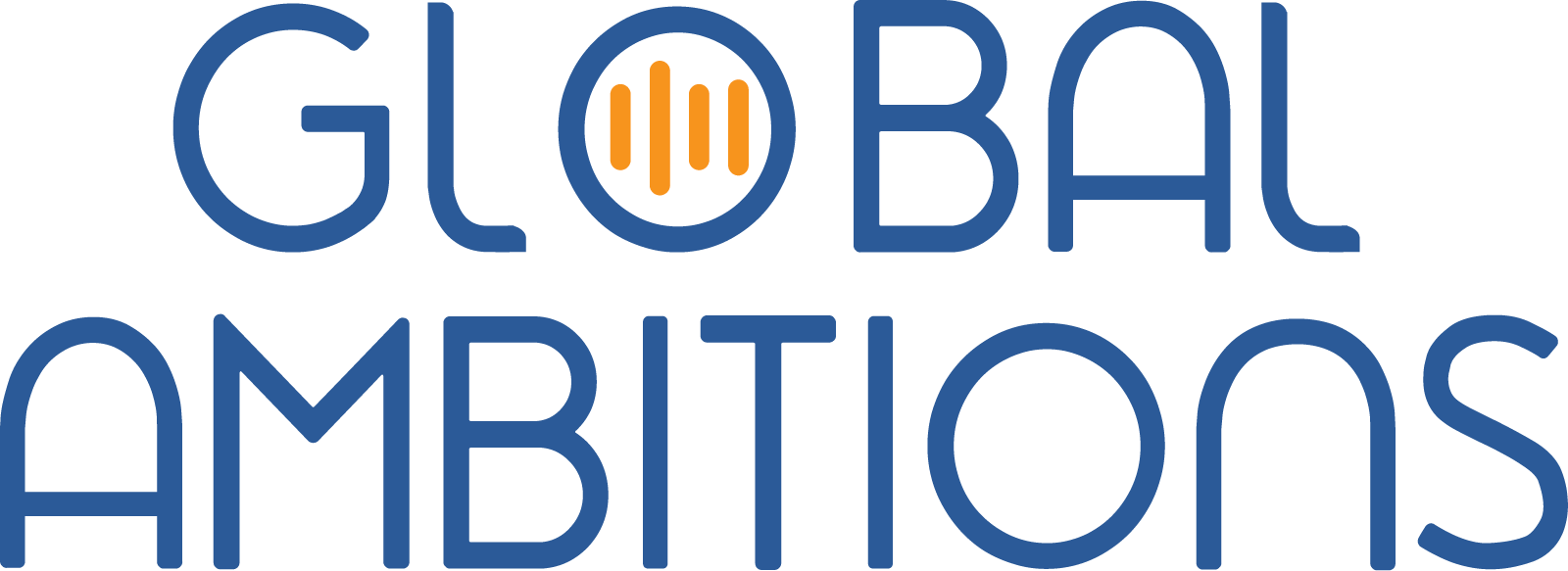With Cristina Triviño, Marketing Localization Team Manager at Atlassian
Below is a transcript of the full interview with Cristina.
Antoine Rey 0:12
Hi, I’m Antoine Ray, and I will be your host today for this global ambition, podcast episode. Today my guest is Cristina Trivino, Localization Marketing Manager at Atlassian. And our topic today is not specifically marketing localization, but more, how do you justify your own existence in an organization like Atlassian as a localization manager. Cristina, welcome to the program.
Cristina Triviño 0:38
Thank you, Antoine. Great to be here, and thank you for having me.
Antoine Rey 0:41
Maybe you can start by describing… Tell us about you and what it is that you do because I expect a lot of people when they joining an organization as a marketing localization manager, they think they’re gonna have to do. A, B, and C from an operational perspective, but it’s much more than that isn’t it.
Cristina Triviño 1:00
That’s right. When I joined Atlassian back in 2015, yeah, that was why I was hired in the first place. I needed to put in place the most basic elements of our localization program that we didn’t have at the beginning. Vendor, TMS, I mean, you name it, everything else. And you kind of put your head down as somebody that… I’ve always been in the localization industry for the last x years. I won’t reveal how old I am. But yeah, you do that and you jump into that. And then the realization comes after that when you do realize that is just phase one of the whole journey.
Cristina Triviño 1:40
And then for a business like Atlassian where internationalization is not a function as such, how do you go about translating into business terms what is it that you do? Why it is important? What kind of impact it is making on the business? And how do you align on an operational level? But a strategic level with what the business was trying to achieve and I think that has been without a shadow of a doubt, my biggest challenge and learning curve at Atlassian and in the role that I have now.
Antoine Rey 2:11
So even more than anybody else, you’ve been ready to build a sphere of influence of people that believe in what you do, you know, beyond your own manager, right?
Cristina Triviño 2:22
I think your manager is key. I think I’ve never had a manager who had experience in international before, but it is absolutely down to that person to get you the resources, to get you the exposure that you need. To bring you… like the manager that I have now, he’s brought me to the founders. He’s brought me to the president. He brought me… he brings me to the CMO to talk strategy and to make sure that we are, as much as we can, resourced properly. And that we… you know, to hook us up with the right people. And that is key because, especially when you’re a small team, and again, you’re remote from everybody else, that’s another component of it. And it’s super important that the right stakeholders, know you and know the work that you do. Why it is important. And the relationships that you build are critical to the survival, I think, down the line of what you do.
Antoine Rey 3:22
So what do you think? Because I see that a lot in the industry where a lot of localization managers that are starting… their main focus is going to be, like what you were saying earlier, on operations right? They’re gonna have to set up vendors or translators. They’re going to have to set up a quality process, they’re going to have to set up technology and workflows and things like that to be able to take all the orders and become like almost a vendor within the organization. But if you stepped it up then, you know, what would you say to those managers that are starting? Say, don’t stop at that because if you stop at that you’re just going to be a ticketing vendor or you’re going to be seen as just a call center.
Cristina Triviño 4:07
It is core to what you do. I always say that at the core of what we do, we need to keep on delivering good translated content, obviously. That is just the first year. The first year and a half, that’s getting your house in order, that’s making sure that you have a streamlined process and, obviously as you said, there’s always 1000 things to do. Integration and process and streamlining and continuous delivery and quality and machine translation you can do anything you want in there. But then I think, for me personally as well in the development of my role… And that has been the big challenge and kind of learning as well, which is, you are a language person. You come from a context of language. And then the challenge comes when you need to come up with a strategy.
Cristina Triviño 4:51
How does your strategy fit into the teams you support? What are the objectives of those teams you support? How do you contribute to the overall business? The goal for all the company? And how do you keep on, you know, building those relationships and making sure that you are bringing value? Because that’s the thing. If you are working on “initiative A”, and the goal of the company is to move their customers to the cloud. At some point, you’re going to be left behind because you need to be, as much as possible, tied to the most revenue-driving initiatives possible. So I would say, yes, talk to people and pester people. Try to have many conversations. Go outside your immediate team and start to reach out. In Atlassian, there’s a lot of culture. Everything is in Confluence and there’s that huge internal wiki that we have to look around and see if I could bring a point of view in this initiatives from what we do. I think that’s the other level and how do you speak to your stakeholders in a language that means something to them.
Antoine Rey 5:56
But a lot of people because they’re like you, they come from a translator background in our industry in a localization management role. There’s a lot of people that come from being a translator or being a localization project manager in the company maybe for a vendor, and then they end up on the client-side, and then they have to go and do business, sell themselves and evangelize and convince people that this is an important function. How do you make that transition?
Cristina Triviño 6:27
It’s a tricky one. I have to say, it’s really tricky. For me, I put it down to several things. I don’t think it’s one thing or the other. For me having some basic knowledge about digital marketing helped me. Because you then could connect some of the thoughts. Then I’d say, try to be present. Try to listen. Try to understand what is important for your stakeholders. I think having good managers and good mentors helps as well because, you know, that helps steer you in the direction that you need to go. And trial and error.
Cristina Triviño 7:05
I’ve gone to many people to talk about quality scores and translated words and they’ve looked to me as if… “Okay? That means? That means nothing to me.” So, what does it… revenue speaks to people. Customers speak to people and customer experience, how what do you do impacts the customer. That is something that leadership cares about.
Antoine Rey 7:30
And that’s the overall journey that a lot of people forget and that they need to make sure that it goes all the way to the customer journey, as opposed to our own journey.
Cristina Triviño 7:41
And then sometimes you’re a linguist and you’re so focused on your quality things, which I love personally, but sometimes you need to let go of certain things. Something that for you is critical. You do realize that in the overall picture, or for the business is not as critical and then you need to learn to let go of certain things and understand what is a priority in the overall scheme of things. You know, what is important. I think that’s important too.
Antoine Rey 8:09
Because as a translator you’d have to tendency to think that quality is the most important thing. And then you have to change your mindset, the same way you have to change the mindset of a lot of people in that organization, and you’re going to have to contribute to their own KPIs, not yours.
Cristina Triviño 8:25
Absolutely, absolutely.
Antoine Rey 8:28
So what you’re telling me here somehow, if I’m not mistaken, is that you’re joining an organization as a localization manager for marketing. But somehow, beyond dealing with the scale, the quality, the processes, the technology that you put in place, you end up in a business position where you have to justify and sell yourself all the time. Right?
Cristina Triviño 8:52
Yeah. That’s right. Not only that, but the other part is that what I find our team does in a very complex manner is, we don’t have internationalization or International as a business function. So, we are integrated, I’m integrated into the marketing organization, and Melanie’s integrated with the marketing but also the product organization, but we don’t have at a strategic level, business level, anybody that will come to us and say, “Okay, this is where the business is going strategically in FY 22 for international and therefore that’s how it’s trickled down to you.”
Cristina Triviño 9:32
We need to take this strategy… as well as being super operational because obviously, we deliver day in day out to the teams that we support. We also act… For my team, we provide the business with insights on what the go-to-market strategy should be based on what we’re building right. And that is a very complex kind of duality that we need to fulfill, as well.
Cristina Triviño 9:54
You know, I will tell you, the first thing I did is… you put a PowerPoint together with what doesn’t work, or with what you need people’s help with, and you go with that keynote on your arm, and you try to do as many presentations as you can. Or you try to be in whatever meetings that you can have a voice in. And that’s how you start, and that’s how you get them to understand, “Okay, I need this, and you need that.” And that’s how you start connecting the dots. That’s how you put the wheel in motion. It takes time, you know, but I think communication, as vague as it sounds, is key because that’s how you uncover what people are after. What are you after and what is a mutual gain in that game, you know?
Antoine Rey 10:39
Yeah. There seems to be a common thread, like a key turning point for a lot of the people that I talk to on this. It is when you start to have your manager or someone else, that becomes a mentor, someone that will help you drive this, and that opens the door.
Cristina Triviño 10:54
That is the most important part for me. Regardless of what I wanted to do, regardless of how well the operational work, regardless of how many presentations I would have made, if I didn’t have somebody above me that enabled me and multiplied my values at work to bring it to the people that needed to see it, and work with me, I would have never gotten anywhere. That is the most important thing I would say. I think it’s very important to have people that, at their level, really need to understand what machine translation means or fuzzy matches. They need to know that when such and such plan for the strategy for next year, localization needs to be included and you need to be in the room, and they need to know about such and such. And when they’re going to change CMS, you need to be in the room because otherwise then, we won’t be able to… And that’s how you start building that kind of map of people that you know and that know you. And that’s how the awareness and the advocacy sort of takes it to another level, I think.
Antoine Rey 13:06
Thanks very much for joining our program Cristina I really appreciate it. I’m sure our listeners will be very excited to hear your story, and what you’ve achieved within Atlassian.
Cristina Triviño 13:19
Thank you so much for having me. Thank you for your time.

Cristina Triviño Castillo
Marketing Localization Team Manager at Atlassian




